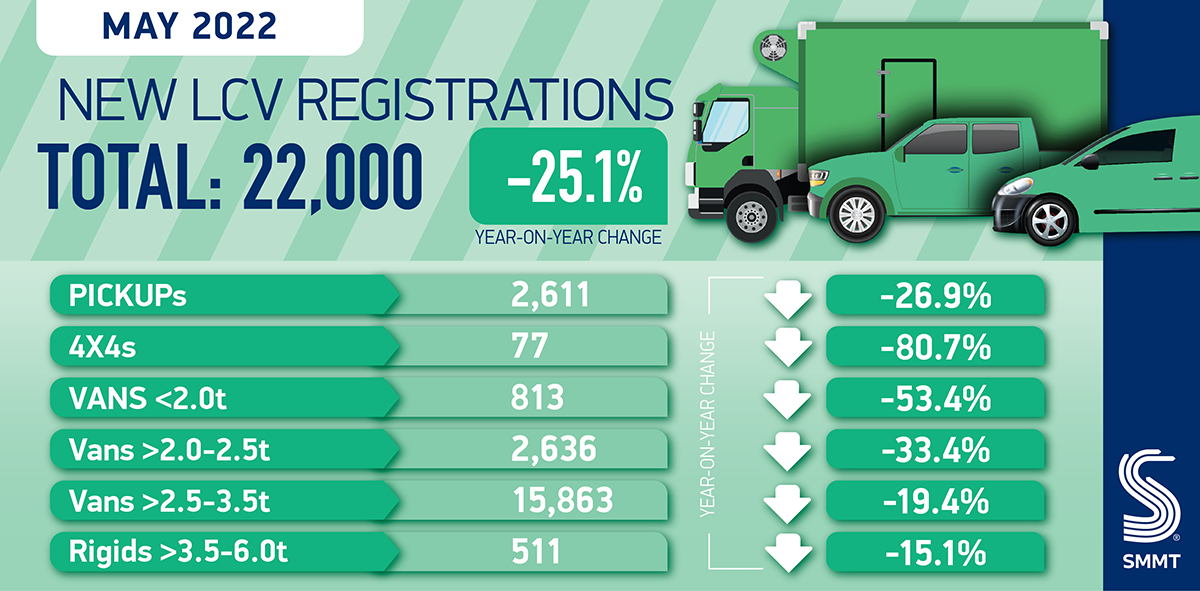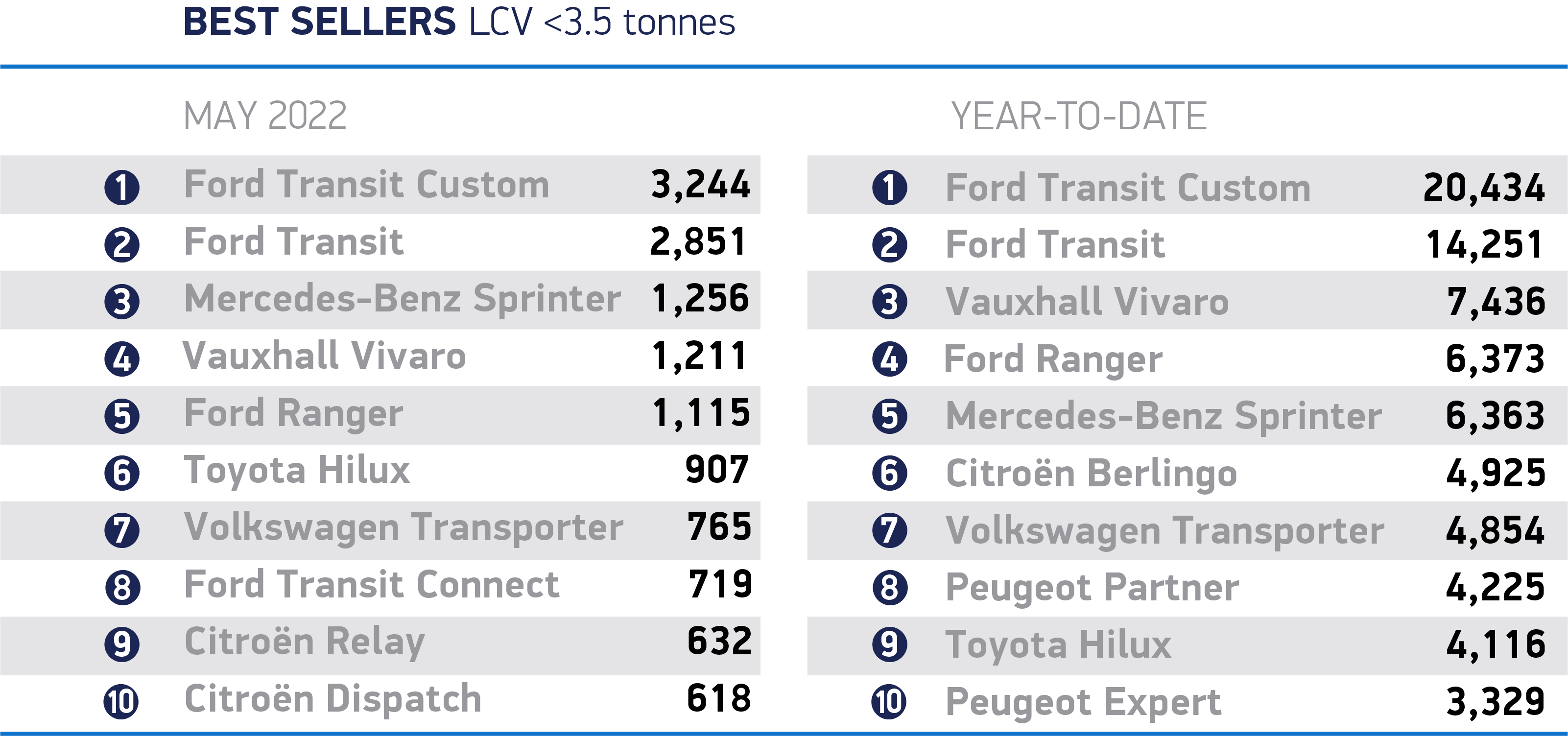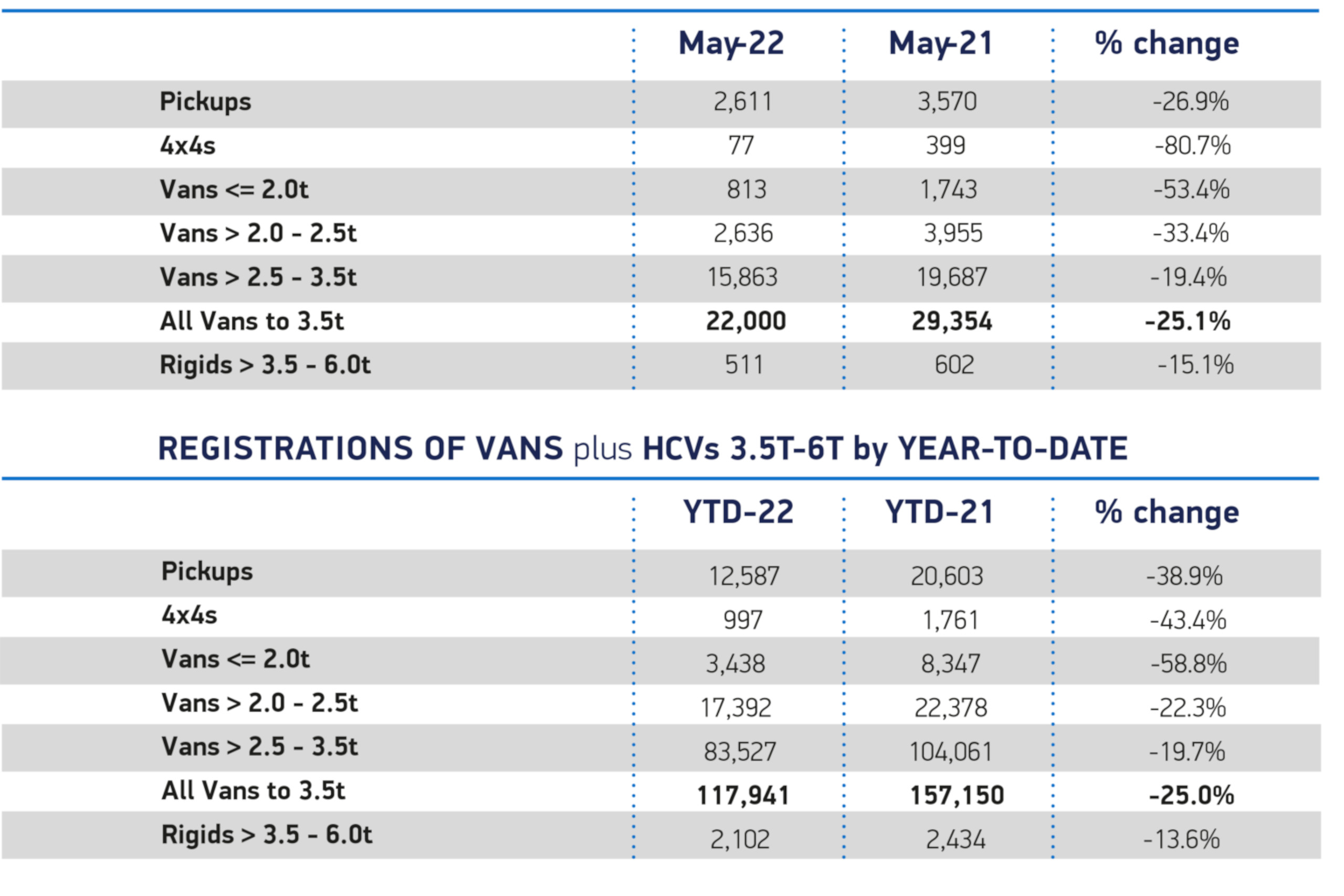Light commercial vehicle registrations are down 25.1% compared to last year. The total van registrations up to 3.5 tons for May were only 22,000 compared to 29,354 for May 2021. This is a significant reduction, though it must be said that May 2021 was a very strong month which will skew the figures a little.
Even taking that into account, the overall Year-to-Date numbers are poor. There have only been 117,941 new van registrations (3.5 ton and smaller) in 2022 by the end of May compared to 157,150 at this time in 2021.

The main cause for this continues to be supply shortages of key components. And with the 2030 net zero target rapidly approaching, it will be interesting to see if diesel van registrations ever return to the numbers recorded in 2021. Phasing them out for electric vans should result in a steady decline of diesel van registrations as customers move to electric.
Ford continue to lead the pack in sales numbers, with the Transit Custom and Transit 350 taking the first and second spots on the leaderboard. These are followed, after a significant margin, by the Mercedes-Benz Sprinter and the Vauxhall Vivaro. How much of this table is down to customer choice, and how much is down to which manufacturers could manage their supply chains and produce more vehicles, is unclear.

hWhile diesel registrations are down significantly, electric van registrations are up by 62.7% to 6,085 units in the first five months of 2022. This does not make up for the reduction overall, but it shows a positive trend for businesses moving to zero emissions vehicles.
Mike Hawes, SMMT Chief Executive, said, “Global supply chain shortages continue to hold back the market following last May’s post-pandemic bounce back. Manufacturers have, however, worked hard to get the latest zero-emission vans to customers, more than doubling their market share. However, this is still an emerging market and everything must be done to encourage drivers to switch to zero emission commercial vehicles if we are to achieve our net zero goals. The industry will tackle the supply chain challenges undermining delivery but we urgently need a van plan to address the paucity of dedicated commercial vehicle infrastructure, as well as incentives to boost the sector’s electric transition.
All these factors indicate that the difficult times will continue for manufacturers, forecourts, and van leasing and rental companies. Vehicles are available, but in the current climate, customers are having to choose from existing stock instead of ordering the van they want. This is not ideal, and will affect the monthly van registrations, but it is a compromise that must be considered.
Low Emissions Zones are appearing all over the country, and it will only become more expensive to keep an older vehicle on the road when zone tolls and maintenance costs come into play.
If the choice is between paying to keep an older vehicle on the road, or upgrading to a new, reliable van that meets emissions rules, then even if it isn’t the exact van the customer is looking for, we would recommend the latter. The ideal van could be a year away when manufacturer order queues are taken into account.

